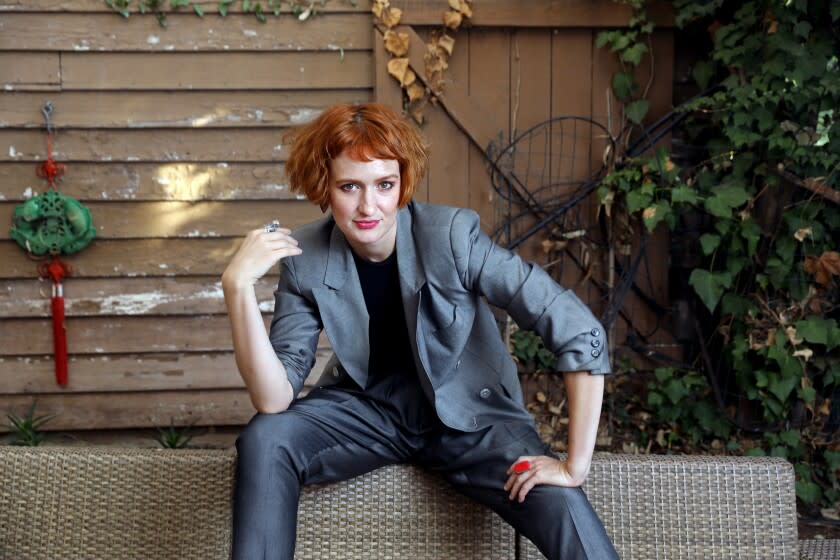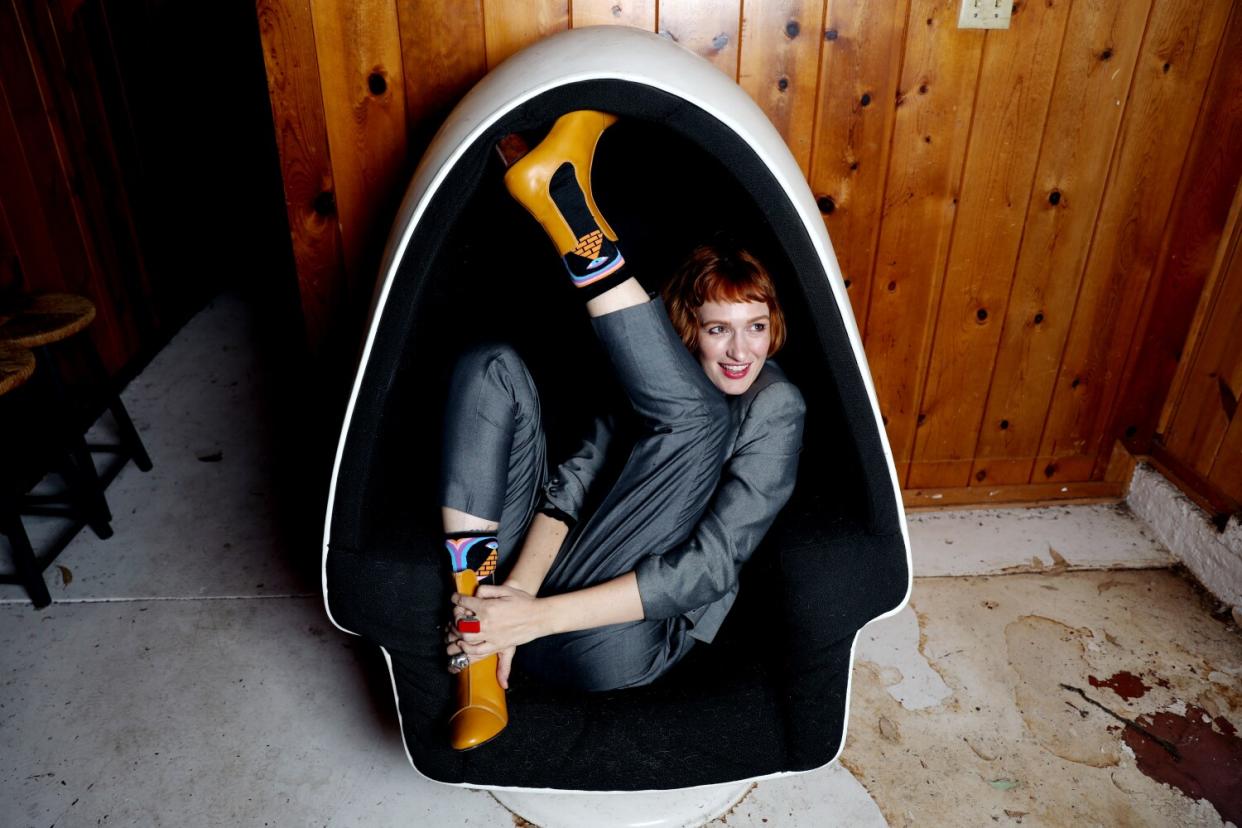Yes, this season's A-listers are great. But did you notice these actors?

The end of the year is a time to marvel at all the big splashes made by big stars in big films. But behind those brand names, yet still in front of the cameras, a number of actors created entire worlds of their own, in support of those very films and stars. With one scene, or even just a handful of lines, these actors manage to embody characters we want to know more about. So once again, The Envelope tips its pressman's cap to these few great actors who’ve made a sizable impression in their brief time onscreen.
Harriet Sansom Harris
Talent agent Mary Grady
"Licorice Pizza"
In the 1970s San Fernando Valley, in the middle of a love story of sorts between Alana and Gary, two young people who can’t stop challenging each other, Alana tells Gary the world doesn’t revolve around him. Fine, but it may very well revolve around Mary Grady, the agent who makes an unmistakable mark on Paul Thomas Anderson’s “Licorice Pizza” in one scene. As played by Harriet Sansom Harris, Mary is magnetic and repellent at once. Her mouth has a mind of its own, alternately pursing and widening into an ominous smile. Simply watching her on a phone call, where she says no three times, in three wildly different ways, while completely ignoring Alana and Gary, is to take a trip into her weird world. “Every actor has been in their agent’s office when a more important call comes through,” Harris notes of the scene.
Harris took a trip of her own to take on the role. In those early pandemic days of August 2020, she was living in the middle of the woods in Massachusetts. “I thought, ‘Am I out of my mind, why in the world would I get on a plane and fly to L.A.?’” she says on a call, safely back in the Berkshires again. “I hadn’t seen another human being in three weeks.” But she had worked with Anderson previously on “Phantom Thread” and couldn’t resist. “I really love Paul. I thought, I’d be out of my mind not to do it.” So she took the leap, and the flight. She, Alana Haim and Cooper Hoffman rehearsed their scene for one day and shot it the next. “It was massively delightful,” she says of the experience. “Paul gives you this perfect little jewel, and he presents it to you knowing it’s something wonderful. A confection.”
Harris, known for her role as another agent, Bebe, in “Frasier,” and Felicia in “Desperate Housewives,” loves playing such gleeful monsters as Mary. “They’re such a release from being oh-so-good and trying to fulfill everybody’s expectations and obligations.”
Breeda Wool
Church worker Judy
“Mass”
Writer-director Fran Kranz’s debut feature “Mass” is mainly a four-hander among two sets of parents who have been horribly impacted by a school shooting. But before and after they settle into a room at a church to talk things out, a few more hands populate the periphery. As the film opens, Judy (Breeda Wool), a church worker, is setting up the room just so. We don’t know her purpose at this point, but we can feel the nervousness wafting off her.
“When I read the script, it was a little unclear as to whether my role in the movie would even survive the cut,” Wool says, speaking by phone from her home in Los Angeles. But Kranz kept the script’s bookends, which set off the powerful story. “Fran has made something original and beautiful and unique, a peek inside the possibilities of restorative justice around this American topic that we have to address as a society.” Aware of the enormity of the meeting, Judy makes clumsy, earnest efforts to help the participants feel as comfortable as possible.
“When people find out that you’re this person enduring tragedy, it’s awkward,” Wool notes. “I felt like that was an important place for me to explore. And a huge part for me was to show that even if you don’t know how to approach it, you still do it anyway. You go forward in trying to make space for people to repair and restore, even if you’re not necessarily the right person for it.”

This is Kranz’s debut feature; he has previously established himself as an actor, which Wool believes made him a particularly effective director. “He created a space for actors to feel like they were important, and our creative process was paramount.”
Ashley Ware Jenkins
Housekeeper Zulena
“Passing”
Rebecca Hall is another actor making her writing and directing debut with “Passing” (based on Nella Larsen’s 1929 novel), in which two childhood acquaintances who are Black reconnect while they’re both passing as white at a New York hotel. One, Irene (Tessa Thompson), is an occasional visitor to the white world, while the other, Clare (Ruth Negga), is a permanent resident. As the film progresses, their friendship deepens and becomes more complicated, with indelible repercussions.
Irene lives in Harlem with her husband and two sons. Her household also includes a Black maid, Zulena (Ashley Ware Jenkins), whom Irene treats dismissively. “Zulena is the eyes and ears of that house, and I think her existence in that house makes Irene uncomfortable, because Irene is trying to project a certain image,” says Jenkins, speaking by phone from her home in New Jersey. “Irene is against discrimination and racism, yet she has a servant working in her home who is not only Black but also dark. Rebecca and I talked about how that fuels a very cold and distant relationship between the two women.” Jenkins, who has worked on Broadway and in touring company productions of “The Lion King” and toured in “The Color Purple,” adds that working with Hall in her own film debut was “a dream. She was so gracious and patient.”
Zulena may have few lines, but her eyes say plenty. “I imagined that she actually was a very educated woman in her own right,” Jenkins says. “She resented the fact that she was being looked down upon simply because of her position in the house and the color of her skin.” Zulena does get one moment of bliss, sitting outside with Clare on an Indian summer day. It’s a moment of peace and camaraderie that she soaks up — before Irene shows up and puts her back in her place.
This story originally appeared in Los Angeles Times.
